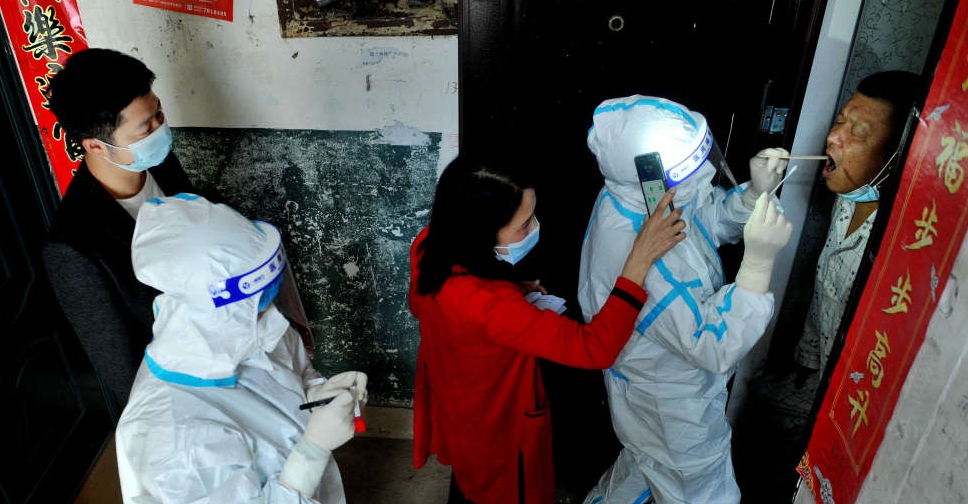
China is on high alert at its ports as strict policies on travel in and out of the country are enforced to reduce COVID-19 risks amid a fresh domestic outbreak, less than 100 days out from the open of the Beijing Winter Olympics.
The National Immigration Administration (NIA) said on Thursday it would continue to guide citizens not to go abroad for non-urgent and non-essential reasons.
The dramatic drop in Chinese travellers since early last year has left a $255 billion annual spending hole in the global tourism market.
The Chinese immigration authority also vowed to strictly implement COVID-19 restrictions on the movement of people involved in the Winter Olympics in and out of China.
China aims to ensure no outbreaks among people arriving from overseas for the Winter Olympics, according to a recent state television report, citing Huang Chun, an official on the Beijing organising committee for the event.
Authorities will strive to avoid failures in virus control for the Games that would then disrupt the event or lead to clusters among residents, Huang said.
COVID-19 curbs are also tightening in the Chinese capital ahead of a major gathering of the highest-ranking members of the Communist Party next week.
Over 700 locally transmitted infections with confirmed symptoms have been reported in China since mid-October in 19 province-level regions, with the geographical spread of the cases triggering a flurry of curbs on tourism and leisure businesses under Beijing's zero-tolerance policy.
Officials say many cases in northwestern parts of China and a separate cluster in northeastern Heilongjiang province traced back to sources brought in from outside the country.
Checks on flights, ships as well as cargo at land ports will be strictly implemented, the immigration authority said.
The NIA also said it will adjust measures on foreigners arriving in China in accordance with changes in the COVID-19 situation, without providing details.
While some countries have removed quarantine requirements for vaccinated inbound travellers, China still insists that most people arriving from outside the mainland to be quarantined for weeks, regardless of their vaccination status.

 Iranian President Raisi killed in helicopter accident, state media says
Iranian President Raisi killed in helicopter accident, state media says
 ICC prosecutor seeks arrest warrants for Israeli, Hamas leaders
ICC prosecutor seeks arrest warrants for Israeli, Hamas leaders
 Assange given permission to appeal against US extradition
Assange given permission to appeal against US extradition
 Israel intends to broaden Rafah sweep, Defence Minister tells US
Israel intends to broaden Rafah sweep, Defence Minister tells US
 New Taiwanese president calls on China to stop threats
New Taiwanese president calls on China to stop threats




